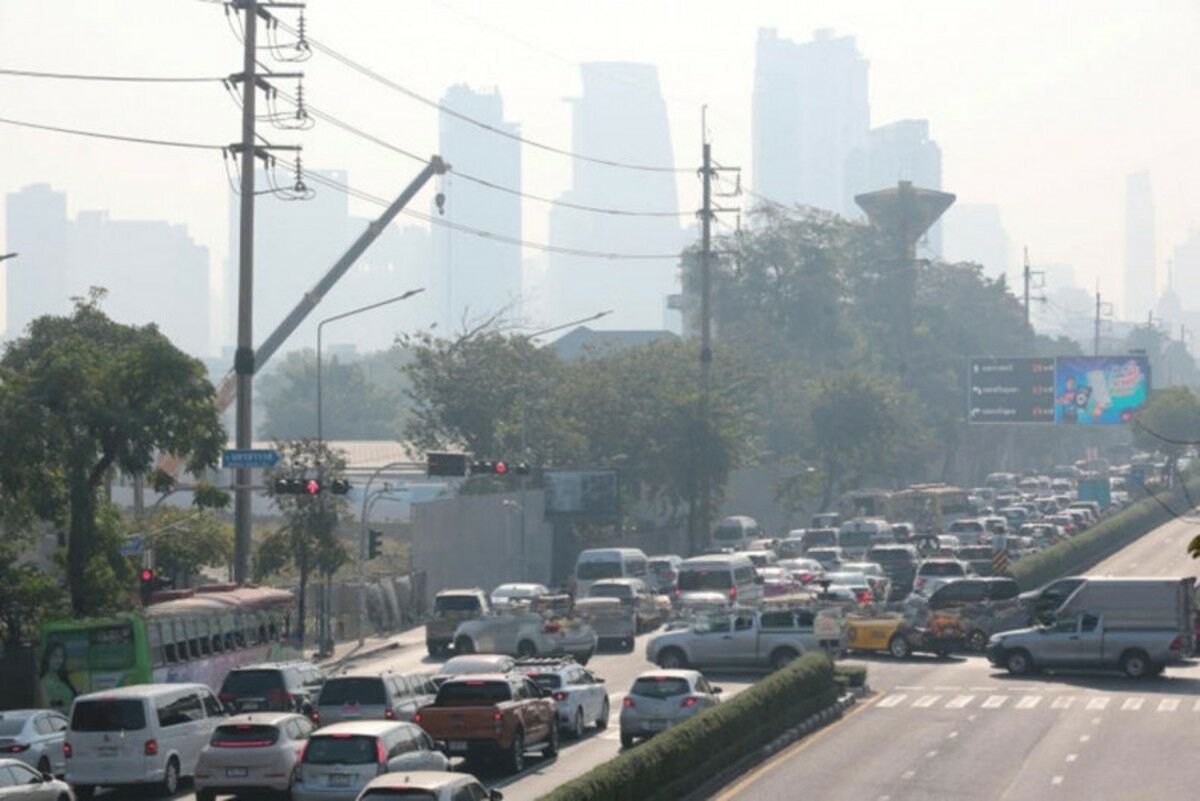Toxic air: Thailand considers work from home nationwide

The Ministry of Public Health is set to recommend a nationwide work from home directive next week after PM2.5 ultrafine dust pollution surpassed safe thresholds in nearly every province yesterday, January 21, with Greater Bangkok experiencing the highest levels.
Public Health Minister Somsak Thepsutin announced that a meeting would be held today to formulate strategies to address the escalating pollution crisis. Among the proposed measures is a nationwide work from home policy, which will be presented during the upcoming Cabinet meeting.
Somsak expressed confidence that if government bodies adopt this policy, the private sector will follow. He referenced a University of Chicago study indicating that prolonged exposure to PM2.5 levels above 37.5 microgrammes per cubic metre (µg/m³) could reduce life expectancy by approximately one year.
With PM2.5 levels anticipated to remain elevated, the minister advised the public to wear N95 masks for optimal protection.
Data from the Geo-Informatics and Space Technology Development Agency (GISTDA) yesterday revealed dangerously high PM2.5 levels throughout Bangkok, with Nong Khaem district recording the highest at 146.5µg/m³.
In response to the persistent unsafe levels in the capital, the Bangkok Metropolitan Administration (BMA) has implemented three key measures. The first is encouraging remote work, initially advised for the first two days of the week, with a potential extension to Friday if pollution levels remain high. The BMA reported that around 200 companies and 100,000 employees adopted work from home arrangements last year, reducing traffic by 8%.
The second measure involves establishing low-emission zones (LEZs). Trucks with six or more wheels are prohibited from the Ratchadaphisek area when red PM2.5 levels are recorded and expected to persist for at least two consecutive days. Exceptions are made for electric vehicles, natural gas vehicles, and those on the Green List.
The final measure is the temporary closure of BMA schools, with four schools having shifted to online classes.
The Pollution Control Department has cautioned that poor air quality is likely to continue nationwide until Friday due to stagnant air and agricultural burning. Recent reports indicated unsafe PM2.5 levels in 70 of 77 provinces, with Greater Bangkok being the most affected. Samut Sakhon recorded the highest level at 144.8µg/m³. Only seven provinces—Phang Nga, Surat Thani, Chumphon, Krabi, Chiang Rai, Chiang Mai, and Mae Hong Son—reported dust levels below the government’s safe threshold of 37.5µg/m³, reported Bangkok Post.
Latest Thailand News
Follow The Thaiger on Google News:


























